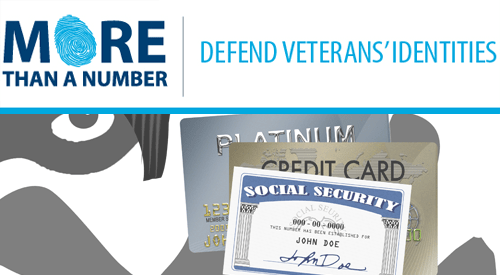As tax-filing season begins, Veterans should be aware of people contacting them who claim to be from the Internal Revenue Service and the Treasury. These IRS tax impersonators have been using phone calls and emails to take millions of dollars from taxpayers in every state in the country. The callers tell intended victims they owe taxes and must pay using a pre-paid debit card, money order or a wire transfer. The scammers threaten those who refuse to pay with being charged for a criminal violation, a grand jury indictment, immediate arrest, deportation or loss of a business or driver’s license.
To prevent taxpayers from falling victim to these scams, the Treasury Inspector General for Tax Administration has expanded their outreach efforts to make sure people remain on high alert. Efforts include video public service announcements in English and Spanish, and working with public and private partner organizations to help get the word out.
“The number of people receiving these unsolicited calls from individuals who fraudulently claim to represent the IRS is growing at an alarming rate,” said J. Russell George, the Treasury Inspector General for Tax Administration. “At all times, especially around the time of the tax filing season, we want to make sure that taxpayers are alerted to this scam so they are not harmed by these criminals,” he said, adding, “Do not become a victim.”
The IRS usually contacts people by mail – not by phone – about unpaid taxes. They will never ask for payment using credit cards, prepaid debit card, money order, or wire transfer. They will never request personal or financial information by e-mail, text, or any social media.
If you get a call from someone claiming to be with the IRS asking for a payment, here’s what to do:
- If you owe Federal taxes, or think you might owe taxes, hang up and call the IRS at 800-829-1040. IRS workers can help you with your payment questions.
- If you do not owe taxes, fill out the “IRS Impersonation scam” form on TIGTA’s website, www.tigta.gov, or call TIGTA at 800-366-4484.
- You can also file a complaint with the Federal Trade Commission at www.FTC.gov. Add “IRS Telephone Scam” to the comments in your complaint.
If you receive an email that you believe is to be a phishing scam, forward the scam emails to phishing@irs.gov. Do not open any attachments or click on any links in those e-mails.
For more information about tax scams, visit the official IRS website at www.irs.gov.
Topics in this story
More Stories
Older adults are targeted with misinformation daily. In 2022, older adults reported losing more than $186 million to government imposter scams.
Learn how to not be the victim of VA impersonators.
“Do you know how to identify a VA claim predator?”







Who is the new ‘Oldest Female Veteran’?
I would love to see a new CATEGORY and info/publications on Veterans Justice. VA-VJO specialists are on the cutting edge of identifying and many mental wellness issues. They are on the “cutting edge”.
Thanks
Phil